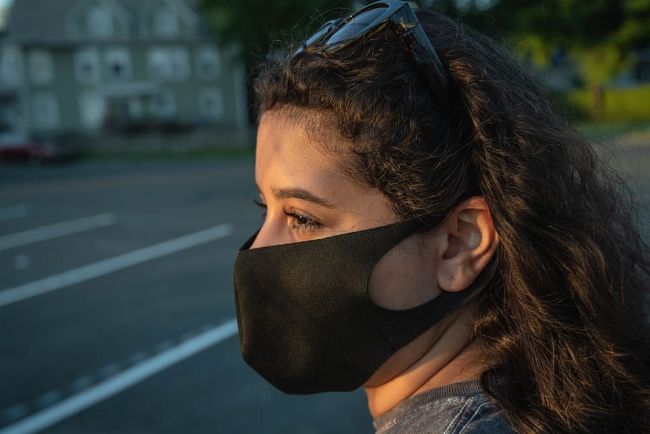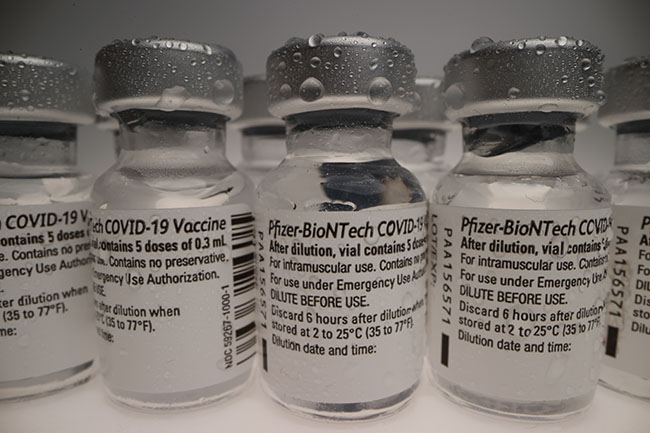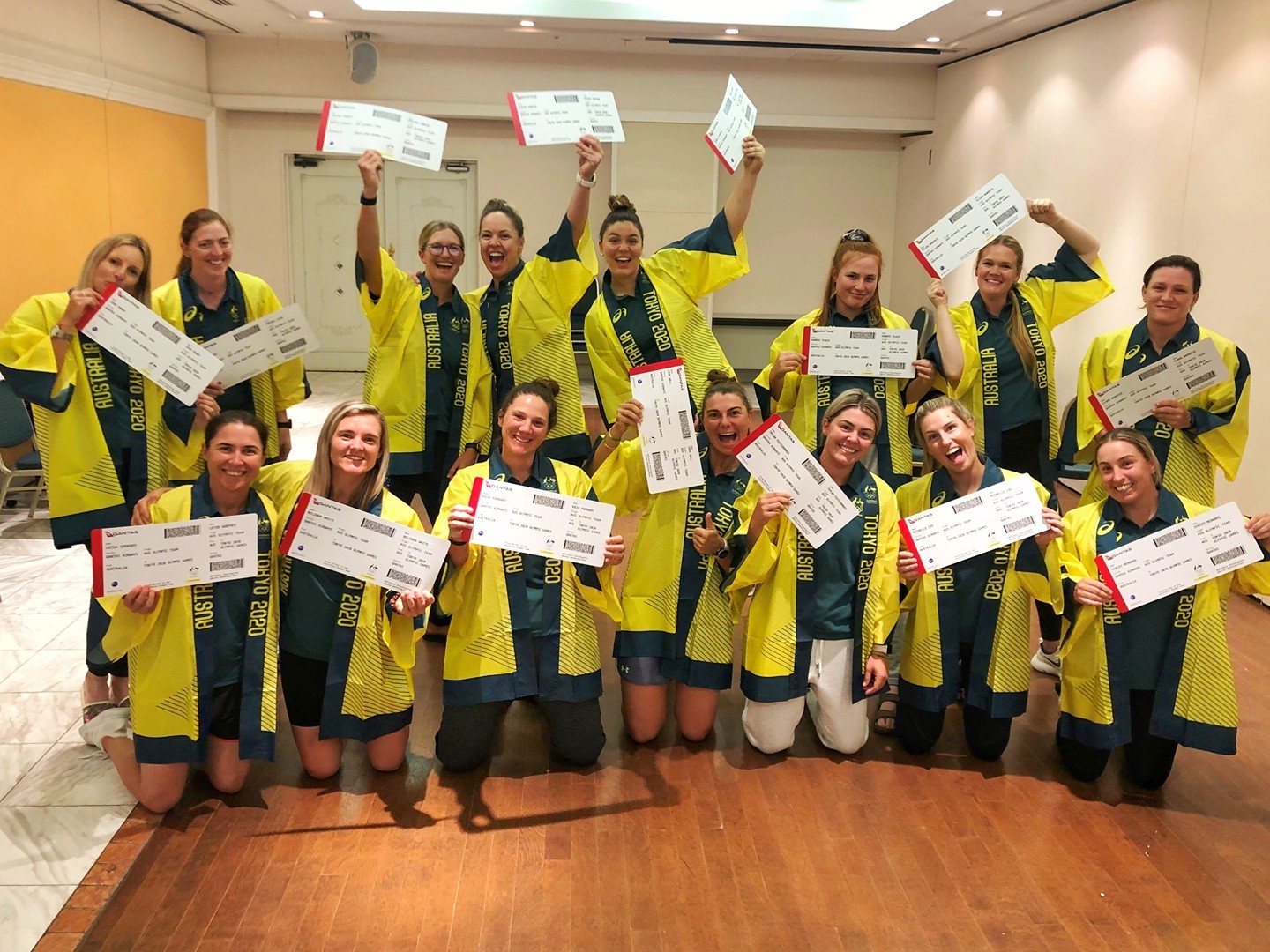Selected
- Details
- Written by Grant Broadcasters
- Category: Selected
- Hits: 260

Saturday was meant to be the day Greater Sydney emerged from a two-week lockdown.
Instead, the city will wake up to the toughest COVID-19 restrictions in over a year and the real possibility the lockdown will stretch beyond its scheduled end next weekend.
The tough new rules, limiting exercise to groups of two and banning browsing at shops, came into effect on Friday at 5pm.
Hours earlier, NSW Premier Gladys Berejiklian had announced the state recorded 44 new cases, marking the worst day of the current virus outbreak.
But worse days are yet to come, foreshadowed Ms Berejiklian.
"Unless there's a dramatic turnaround in the numbers, I can't see how we'll be in a position to ease restrictions by next Friday," the premier said.
"(This is) the greatest threat we have faced in NSW since the pandemic started ... (and) at the moment the numbers are not heading in the right direction."
Twenty-nine of the cases recorded in the 24 hours to 8pm on Thursday were in the community for some or all of their infectious period.
The premier said a premature reopening of Greater Sydney would result in thousands of coronavirus cases, hospitalisations and deaths.
Prime Minister Scott Morrison on Friday advised Sydneysiders to "push through" and comply with restrictions.
"Hopefully (the lockdown is) as brief as it can be, but as long as it has to be, to ensure that we suppress the virus and this most recent outbreak and we're able to get back to where we were a few weeks ago," Mr Morrison told Nine's A Current Affair on Friday evening.
The state's health department on Friday issued alerts for 30 more venues across Sydney.
Several places are listed close contact exposure sites for periods of seven hours or longer.
They include an Ikea at Tempe, where a staffer worked whilst infectious, and a construction site at Homebush.
Seven furniture stores along the same road in Campbelltown have also been identified as venues of concern for visitors on Sunday afternoon.
Other venues include Westfield Burwood, two Bunnings shops, in Randwick and Hoxton Park, a Miranda Service NSW, medical centres in Liverpool and Wetherill Park, and numerous supermarkets.
The number of close contacts isolating across NSW doubled in 24 hours, from 7000 to 14,000, Ms Berejiklian said on Friday.
Under the new restrictions, only one person per household may leave the home for shopping each day. Residents cannot exercise further than 10km from their home.
Funerals will be limited to 10 people.
Ten COVID-19 patients in NSW are in intensive care, with four ventilated - one person aged in their 20s.
© AAP 2021
Image Credit: https://www.pxfuel.com/en/free-photo-xchmp
- Details
- Written by Grant Broadcasters
- Category: Selected
- Hits: 280
Australia will soon have access to up to one million doses of Pfizer vaccines per week, with supplies of the jab set to triple.
The country currently has between 300,000 and 350,000 Pfizer vaccines doses a week to administer.
That will jump to one million a week in the second half of July.
In August, Australia will receive 4.5 million doses of Pfizer vaccines, which is significantly more than first anticipated.
Prime Minister Scott Morrison is confident the extra Pfizer supplies will give the troubled vaccine rollout a shot in the arm.
And with another 1300 GPs joining the rollout to deliver the Pfizer doses, he believes the rollout can be completed by Christmas.
"We really are hitting the marks we need to hit," Mr Morrison told ABC radio on Friday.
"We've done a lot of catch-up, particularly over the month of June, and that's seen us now hitting the levels we need to get this job done and have everyone offered a dose by the end of the year."
Pfizer is the recommended vaccine for people aged under 60 so the boost to supplies should improve vaccination rates.
Just 10 per cent of Australians aged over 16 are fully vaccinated with two doses.
Deputy Opposition Leader Richard Marles said the boosted Pfizer supplies were desperately needed.
"We need those doses because the prime minister promised we would be at the front of the queue and in fact we're languishing at the bottom of the OECD ladder," he told the Nine Network.
"That's all because the prime minister said this wasn't a race and in fact is obviously is a race, a race against the virus.
"The failure to properly vaccinate the population is what's underpinning the lockdowns we are experiencing around the country now, particularly in NSW."
National cabinet will meet on Friday to discuss the coronavirus outbreak in NSW and a proposal to make vaccines mandatory for disability workers.
Australians under lockdown in NSW have been urged to get their second AstraZeneca dose within eight weeks of their first jab.
A 12-week gap between AstraZeneca jabs has been recommended as the most effective way to protect people.
But the prime minister wants people in the worst-affected areas who have received a first jab to make second dose appointments closer to eight weeks.
He said this was consistent with the advice of the national expert immunisation panel known as ATAGI.
In the three Sydney councils areas with the most infections, about half of those aged over 70 have received a first dose.
An extra 300,000 AstraZeneca - which is recommended for people over 60 - and Pfizer vaccines will be made available for NSW.
Federal, state and territory leaders are expected to make vaccines mandatory for disability support workers.
A similar order has already been imposed on aged care employees, who must receive at least one jab by mid-September to keep working in the sector.
© AAP 2021
Image Credit: U.S. Secretary of Defense, CC BY 2.0, via Wikimedia Commons
- Details
- Written by Grant Broadcasters
- Category: Selected
- Hits: 298
Australia's 472-strong team for the Tokyo Olympics features a record number of women and Indigenous athletes.
A special @ASICSaustralia Happi Coat and @Qantas Boarding Pass delivery to their hotel in Japan - welcome to the Team #AussieSpirit! 💚💛#TokyoTogether @SoftballOz pic.twitter.com/k3y5ZIIre3
— AUS Olympic Team (@AUSOlympicTeam) July 1, 2021
The team for the Games starting on July 23 includes 254 women and 218 men, with 16 Indigenous athletes.
The number of female athletes is 40 more than the nation's previous most at a Games, at the 2016 Rio Olympics.
And the 16 Indigenous athletes is four more than at the Sydney 2000 Olympics.
Australia's team is the second-largest to contest an away Olympics, 10 shy of the 482 athletes who contested the 2004 Athens Games.
Australians will compete in 33 sports in Tokyo including all four new Olympic sports of karate, skateboarding, sport climbing and surfing.
At the Rio Games, Australia won eight gold, 11 silver and 10 bronze medals but the Australian Olympic Committee (AOC) has stopped publicly setting a medal target for the Games.
"The AOC has talked about not setting medal targets and placing unhelpful expectations on these athletes," Australia's chef de mission Ian Chesterman said in a statement on Monday.
"Given the events of the past 18 months, this has been the correct path, getting to the start line has been so difficult.
"They don't need pressure from us."
Equestrian veteran Andrew Hoy will contest his eighth Olympics, a record for an Australian.
And fellow equestrian stalwart Mary Hanna and table tennis' Jian Fang Lay will compete at their sixth Games, a record for an Australian female.
Cyclist Cameron Meyer withdrew from the team for personal reasons at the weekend, when two changes were made to Australia's men's soccer team with Marco Tilio and Jay Rich-Baghuelou replacing Ramy Najjarine and Ruon Tongyik.
© AAP 2021
Image Credit: AusOlympicTeam / Twitter
- Details
- Written by Grant Broadcasters
- Category: Selected
- Hits: 251

Some 500 GPs across Australia will start rolling out the Pfizer jab to people aged between 40 and 59 this week.
Deputy Chief Medical Officer Michael Kidd says a further 800 GPs will come on board during July and August, including many Aboriginal community-controlled organisations.
He said over 8.2 million doses have now been administered in Australia, including five million does of AstraZeneca.
"These vaccines protect you and your family and the wider population against the risk of serious illness and death," Professor Kidd reminded reporters on Sunday.
More than 70 per cent of people aged over 70 years, more than 60 per cent of those aged over 60 years, and more than 50 per cent of people aged over 50 years have received at least their first dose of a COVID-19 vaccine.
"In addition, nearly 30 per cent of those aged over 16 years have had at least one dose of a COVID-19 vaccine," Prof Kidd said.
However, there is still no exact timetable for when under-40s can get the recommended Pfizer vaccination.
Finance Minister Simon Birmingham said there will be a marked step up in availability of the Pfizer vaccine in the next few months, rising from around 300,000 doses a week now to about 600,000 doses a week, and further increases are forecast in September.
"There's not a fixed date that I can give you now," Senator Birmingham told ABC's Insiders program.
Victoria is already complaining that its Pfizer allocation is dwindling as NSW gets more to battle its unfolding virus outbreak.
NSW reported 16 locally acquired cases in the 24 hours to 8pm on Saturday, including three aged-care residents.
It follows the 35 cases reported the day before, taking total infections in the state since the start of the outbreak to 277.
Premier Gladys Berejiklian said the dip in case numbers was a good sign, but reiterated all people in Greater Sydney and surrounds must adhere to lockdown provisions, which will remain in place until at least Friday.
Queensland recorded a single local COVID-19 case overnight as residents in Brisbane and Moreton Bay ready for their first full day without a lockdown.
The state also recorded an additional case in hotel quarantine and acquired overseas.
Western Australia reported one new local case amid the first phase of interim post-lockdown restrictions in the Perth and Peel regions.
The man has been in quarantine since June 26 and doesn't represent any public health risk, WA Health Minister Roger Cook said.
© AAP 2021
Image: cortex-film / Shutterstock
Page 179 of 191

